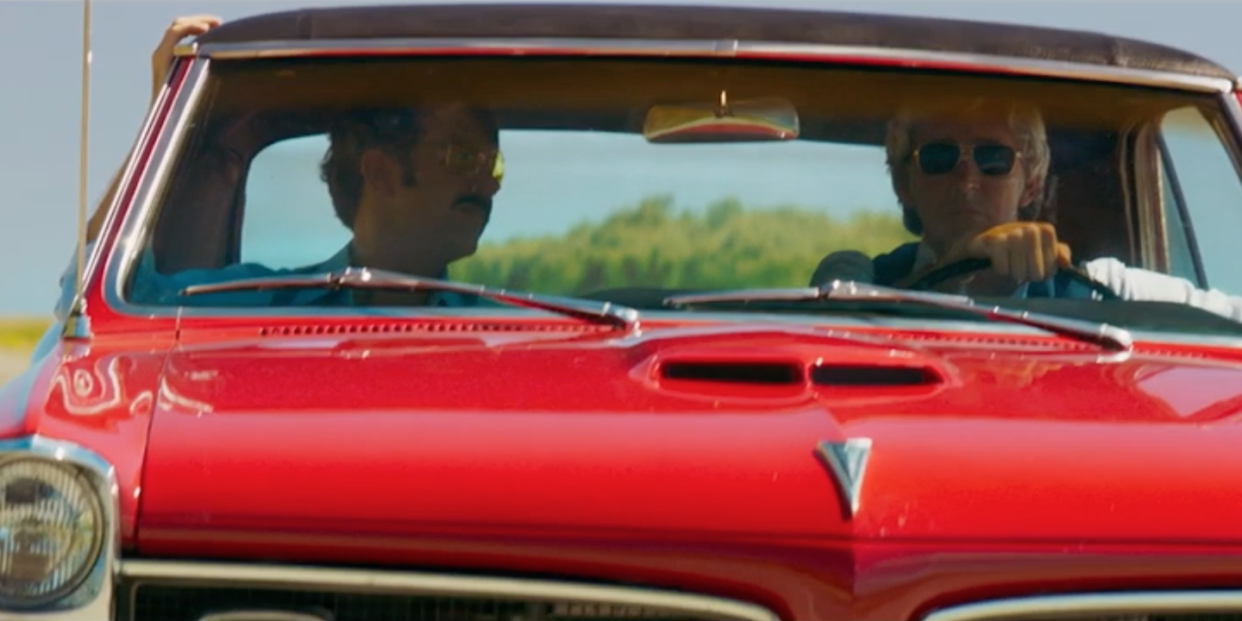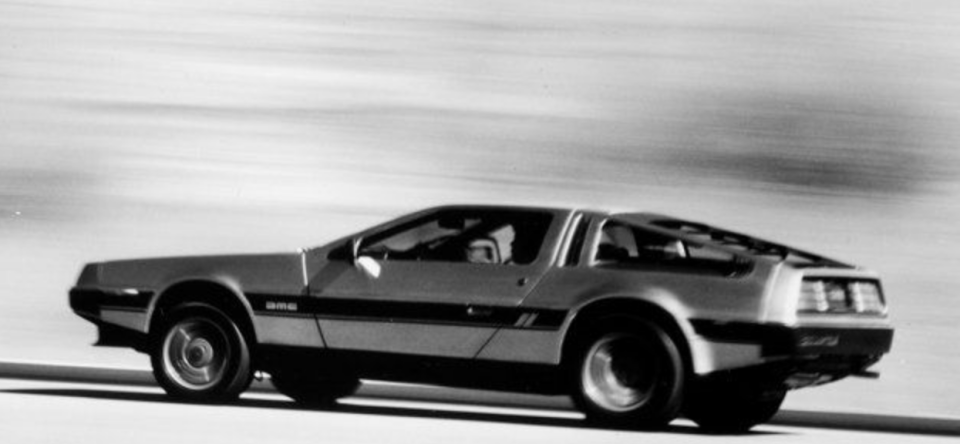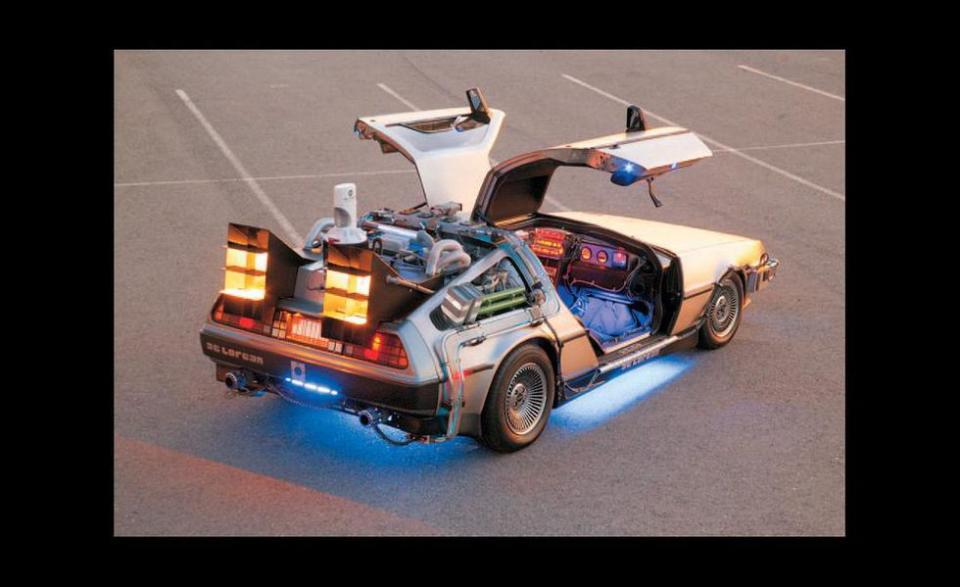We're Having Yet Another John DeLorean Moment

On a Clear Day You Can See General Motors was one of several books that shaded my understanding of the auto industry just as I was starting my career as a Detroit-area newspaper journalist obsessed with cars. Published in 1979, the book was conceived as an "as told to" tell-all by John Z. DeLorean, who pulled out of the project with author J. Patrick Wright at the last minute, concerned that its content might dissuade potential investors in his new car company. Business Week reporter Wright published without DeLorean's endorsement or byline, instead subtitling it as "John Z. DeLorean's Look Inside the Automotive Giant."
DeLorean had parlayed his 17-year career at GM—including the creation of the original Pontiac GTO and, by extension, the entire 1960s muscle-car phenomenon, and a dramatic turnaround in sales at Chevrolet—into celebrity status unmatched by any auto exec of the era outside of, perhaps, Lee Iacocca. The book had been conceived in the heated hurt of his 1973 departure from GM in a "You can't fire me, I quit" scenario, when the opportunity to vent his frustrations may have been more appealing than it was years later when he'd moved on to creating his own car company. Even at the time, I was aware of the hypocrisy in this sudden change of heart. DeLorean wanted to be seen as a nonconformist maverick, but here he was bailing out on his own story in favor of a go-along-to-get-along reluctance to offend. He was really all about expedience in the pursuit of whatever egotistic dream he was chasing at the moment.
That he enjoyed some modicum of success is evident in that, 40 years on, America is having yet another John Z. DeLorean moment. Not since "Back to the Future Day" on October 21, 2015, have we been so steeped in DeLorean lore. That's because, after decades of people saying "There's a movie in that story" and several failed efforts to produce such a film, this summer delivers us two. In theaters now and also available streaming is an unconventional documentary, Framing John DeLorean, in which Alec Baldwin performs as DeLorean in several reenactments but spends at least as much screen time being himself talking about the challenges of playing John DeLorean.
As Ezra Dyer amply explained in his review of Framing, the film is "a documentary about this man, but also about how hard it is to make a documentary about this man." Which makes it a good setup for anyone planning to see the coming "dramedy" biopic feature called Driven, opening August 16, for which a trailer was released just in time for your flag-waving July 4 viewing pleasure (when the film was supposedly aimed for simultaneous theatrical and streaming releases on Aug. 3).
It doesn't take more than the first 30 seconds of a two-minute trailer to see that Driven promises to be nothing like a documentary. By the time I became a full-time automotive writer in 1986, the DeLorean story with its sordid cocaine-deal denouement had pretty much played out, although colleague Ed Lapham at Automotive News was still "following the money" related to the fraud and tax-evasion charges DeLorean beat at trial in 1985. Tens of millions in British government money had magically disappeared, purportedly diverted into the personal accounts of John Z. and Lotus founder Colin Chapman, who only beat the rap by the expedience of dying of a heart attack first.
Watching the Framing documentary, I spotted Lapham's byline under some of the headlines that advance the story. He also wrote a well-founded analysis for Car and Driver about the company's dim long-term prospects, which was published in the May 1981 issue, even before Don Sherman's first-drive report of the DeLorean DMC-12 in the July 1981 issue of Car and Driver focused on quality issues, primarily having to do with the gullwing doors. All of that preceded the arrest of the man himself in late 1982.

The customary Hollywood assertion that such films are "based on" a true story papers over many sins, but Driven is clearly grounded in the factually insupportable premise that DeLorean and the FBI informant who lured him into a big cocaine deal were tight buddies, next-door neighbors who drove around in Hoffman's GTO (a convenient imagining seen in the photo atop this story) and engaged in various wild adventures that moviemakers play up for laughs. In reality, the informant James Hoffman was only briefly a neighbor. As the Framing John DeLorean story makes clear, while their sons were friendly, DeLorean himself claimed to have only met his neighbor once, briefly, many years before Hoffman reappeared in his life dangling the lure of investors who might solve his car company's severe cash-flow problem.
It may well work as comic entertainment, but the veracity of the dramatic storyline appears to be flimsy indeed. Sadly, it is poised to create a public perception of DeLorean's story that is at least as far divorced from truth as was Francis Ford Coppola's version of the Preston Tucker story. You don't need to attend many Saturday morning Cars and Coffee events to find supposedly well-informed car people recounting elements of the Tucker legend as told by Coppola as historical fact. Reminder: Tucker: The Man and His Dream was billed as a comedy-drama, too, and it took many liberties.
We needn't pick either new DeLorean film apart frame by frame to make the point that, as is often the case, anyone in search of historic accuracy would do far better to devote some time to reading. C/D's own Alex Stoklosa did a good brief history in 2015, and there's a bit of deep-dive long-form journalism that appeared in the online magazine Epic in late 2018 that tells a fuller version. The world's fascination with the story has generated a continuing stream of books, and two fairly recent ones are told by insiders: 2013's The DeLorean Story by Nick Sutton, who worked at the DeLorean Motor Company for four years, was followed in 2015 by John Z., the Delorean and Me by Barrie Willis, who was DMC's director of purchasing and, after John Z.'s fall, served as the last CEO, overseeing the shutdown.
While Framing interviews sources who know the inside story, we still get the ahistorical assertion that, had DeLorean succeeded in creating a new car company, he'd have been the first to do so since Walter P. Chrysler in the late 1920s. This claim rests on the false premise that what he proposed to do was to challenge his former employer, General Motors, as a large-scale, full-line manufacturer. DeLorean's venture, instead, more closely paralleled the post–World War II creations of Porsche, Ferrari, and even his business partner, Lotus—all far newer than Chrysler. In his wildest dreams, DeLorean's company wouldn't have rivaled even Saab, another post-Chrysler creation, in sales volume.
I don't mean to be a stick-in-the-mud here. Or perhaps I do. That Hollywood mangles fact in favor of making colorful, laugh-a-minute stories is hardly a revelation. That Americans seem to learn much of what they think of as "history" while watching entertainments, though, makes it hard to commend these efforts. Framing John DeLorean, of course, hews much closer to the facts and makes the point that DeLorean hurt a lot of people, not least his family, but also many in Ireland where he'd built his factory. The filmmakers interview Sherman to illustrate that the car was neither one of history's great sports cars nor particularly well built. Baldwin's role seems more contrived to build box-office interest than out of any documentary necessity—the "reenactments" in which he appears are lackluster and brief.
At least Baldwin's makeup artists do a more credible, if at times caricature-like, job of recreating their subject's appearance than do those who worked on Driven, who seem to figure making lead actor Lee Pace vaguely resemble the real guy is good enough.

Heck, even their title is lazy, inviting confusion with two recent films: a 2018 biopic about film critic Pauline Kael and an early-2019 thriller about a cabdriver battling evil. If you trip across either of these other movies called Driven, they might make better use of your time. Or maybe I should just loosen up and laugh a little; it's not as if the Back to the Future franchise taught us anything about automotive truth and beauty.
('You Might Also Like',)

